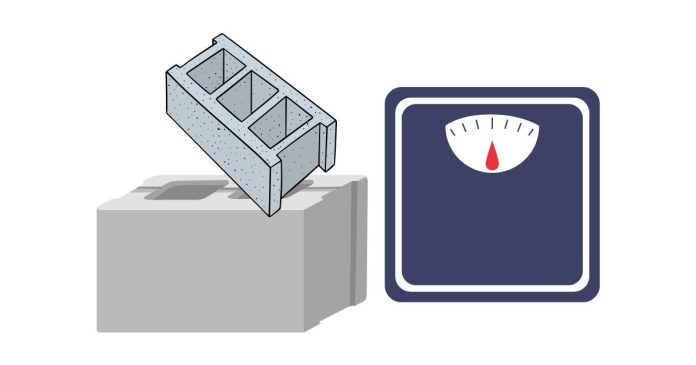If you’re planning a construction project or just curious about the materials involved, you may find yourself asking: How much does a cinder block weigh? Cinder blocks are a popular building material due to their durability and strength, but understanding their weight is essential when handling them, calculating material needs, or planning for transportation. In this post, we’ll explore the weight of a typical cinder block and discuss the factors that can affect its weight.
What is a Cinder Block?
Before we dive into the weight, let’s first define what a cinder block is. Cinder blocks, also known as concrete masonry units (CMUs), are rectangular blocks commonly used in construction, especially for building walls, foundations, and other structural components. These blocks are typically made from a mixture of concrete, ash, and other materials that give them their characteristic lightweight yet durable qualities.
Typical Weight of a Cinder Block
The weight of a standard cinder block can vary depending on its size and composition. However, the typical weight of a standard cinder block (8 inches by 8 inches by 16 inches) is approximately 35 to 40 pounds (around 15.8 to 18.1 kilograms).
Factors Affecting the Weight of Cinder Blocks
While the typical weight of a cinder block is around 35 to 40 pounds, several factors can affect its exact weight:
- Size of the Block
Cinder blocks come in various sizes, and the weight will naturally vary depending on the dimensions. Larger blocks or those with different thicknesses will weigh more. - Material Composition
Some cinder blocks may have a higher concentration of aggregates or other materials, making them heavier. For instance, blocks made with denser materials will weigh more than those with a higher proportion of lightweight aggregates. - Hollow vs. Solid Blocks
Cinder blocks can either be hollow or solid. Hollow blocks are lighter because they contain empty spaces, whereas solid blocks, made entirely of concrete, tend to weigh more. - Moisture Content
Cinder blocks may absorb moisture from the environment, which can slightly increase their weight. A freshly made block may be heavier compared to one that has dried out over time.
Why Does the Weight Matter?
Understanding the weight of cinder blocks is important for several reasons:
- Handling and Transportation
Since cinder blocks can be heavy, knowing their weight helps in planning how many blocks can be handled or lifted at once. For example, if you’re stacking blocks or using equipment to move them, knowing their weight will help prevent accidents or damage. - Estimating Materials
If you’re purchasing cinder blocks for a construction project, knowing their weight can help you estimate how many you’ll need and the total weight of the materials. This is also helpful when calculating delivery costs or renting lifting equipment. - Structural Considerations
The weight of the blocks can affect the overall structure of your building, especially if you’re constructing walls or foundations. Heavier blocks may be more stable, but they can also increase the load on the building’s foundation.
The average weight of a standard cinder block is about 35 to 40 pounds (15.8 to 18.1 kilograms), but this can vary depending on factors such as size, material composition, and whether the block is hollow or solid. Understanding the weight of cinder blocks is crucial for planning construction projects, handling materials safely, and ensuring structural integrity.
Are you working with cinder blocks on a project? What’s your experience with their weight or handling? Feel free to share your thoughts in the comments below!


